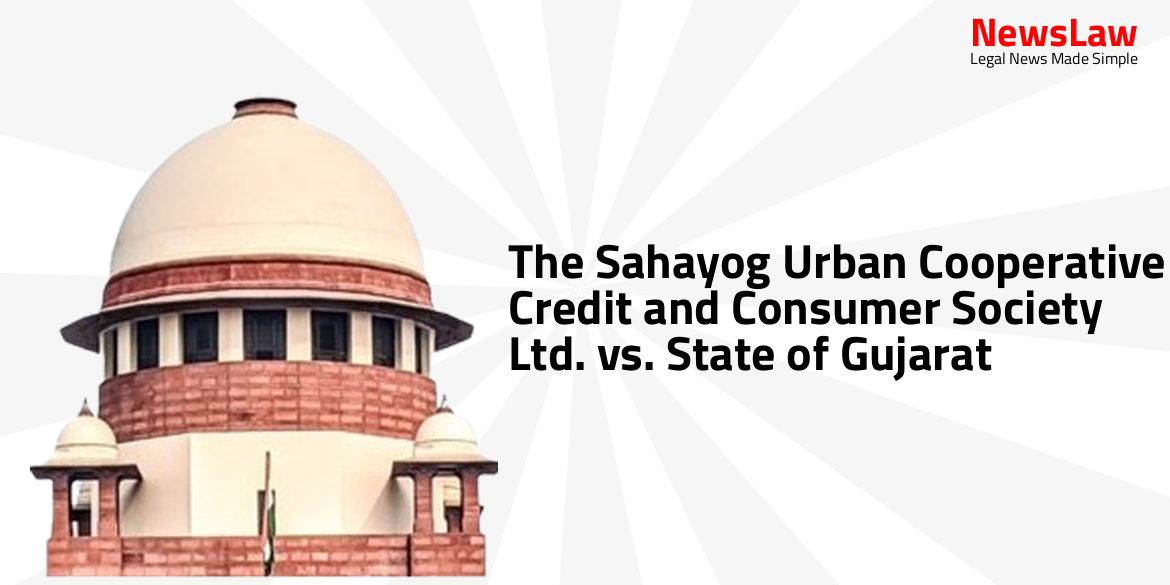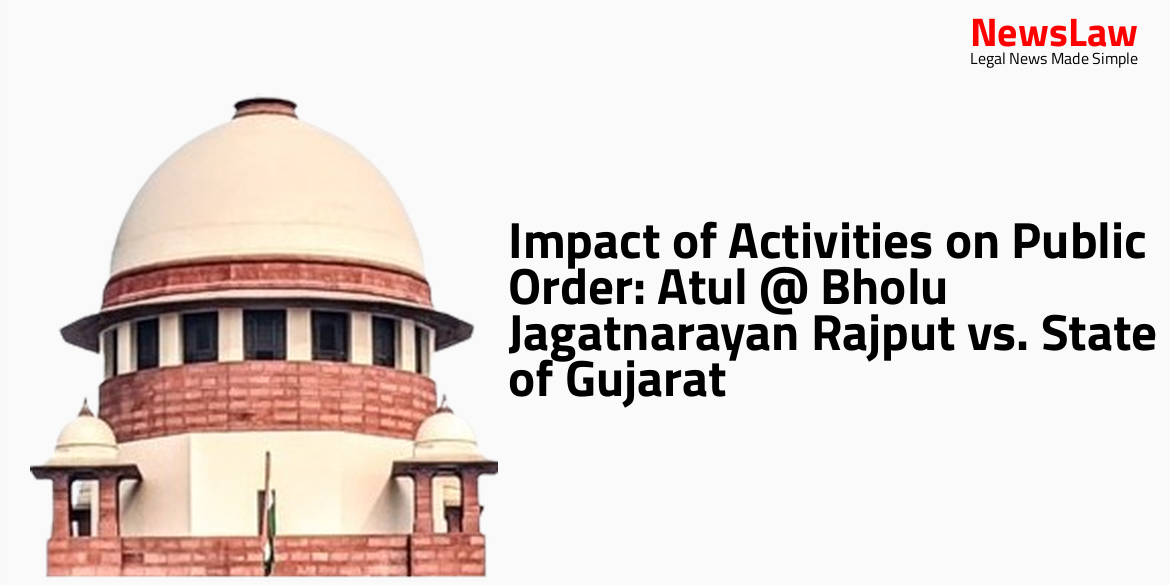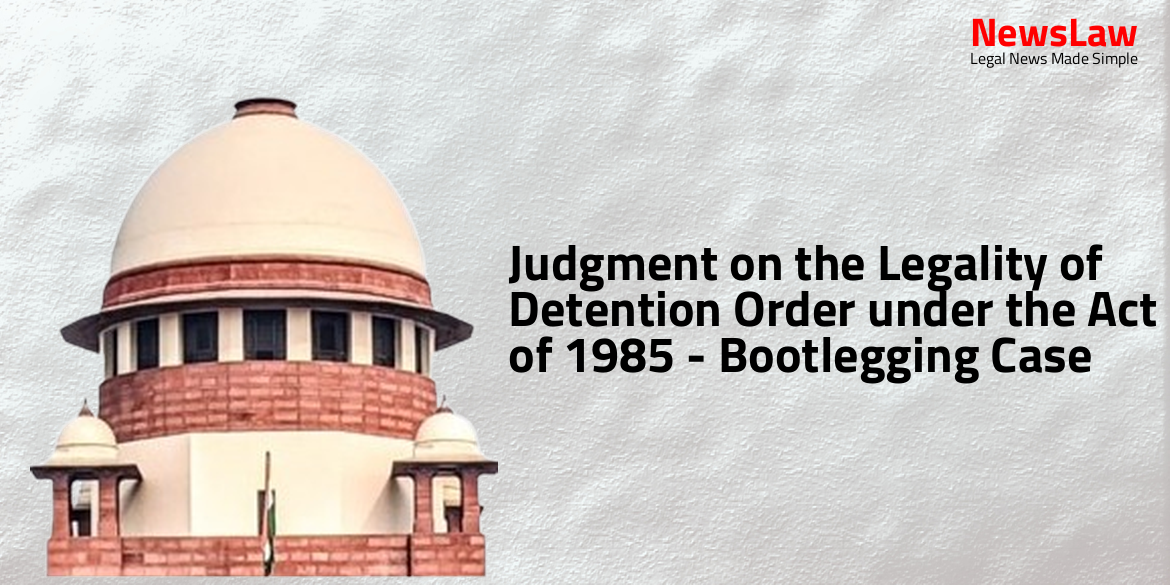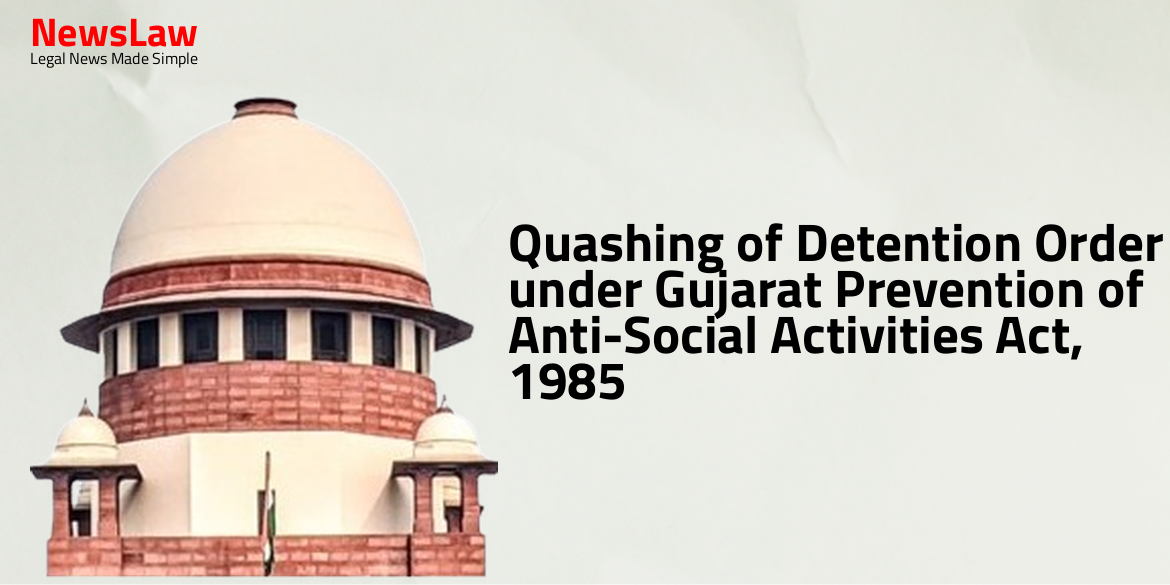In a recent ruling by the Gujarat High Court, a significant case involving The Sahayog Urban Cooperative Credit and Consumer Society Ltd. and the State of Gujarat has been decided. The case revolves around allegations of fraud and financial misconduct within the cooperative society. This judgement marks a pivotal moment in the ongoing legal proceedings. Explore the details of this crucial legal battle and its implications on cooperative societies in the region.
Facts
- The Sahayog Urban Cooperative Credit and Consumer Society Limited is a registered cooperative society in Surat, operating as a credit society.
- Allegations have been made against the office bearers of the society for operating in a manner that reportedly causes losses by accepting deposits at high rates of interest and providing loans to members.
- The audit of the society was conducted by the District Registrar’s appointed Auditor for the period from April 1, 2019, to March 31, 2023.
- No specific criminal allegations have been made against the individuals named in the Auditor’s special report.
- The special report, dated September 2, 2023, highlighted various defects in the functioning of the society.
- The Auditor classified the society under Class-B in the audit classification.
- The society’s operations include accepting deposits from members and providing loans to them.
- The audit process is ongoing under the supervision of the District Registrar, Cooperative Societies.
Arguments
- Petitioner’s advocate argues that the FIR is politically motivated and the petitioner did not siphon any society funds.
- The advocate claims that the petitioner followed the Board’s resolution to pay higher interest to known depositors, which does not constitute fraud.
- It is highlighted that the petitioner was not individually involved in the alleged offense of paying more interest.
- Allegations of wrongful expenses by the petitioner are deemed baseless and unsubstantiated.
- The advocate asserts that the petitioner has not taken any money from the society.
- The major alleged loss to the society occurred during the complainant’s term as President, not the petitioner’s.
- The advocate distinguishes between causing a loss to the society and defrauding it, asserting the former is the case here.
- The petitioner’s deep roots in the society, availability for investigation, and lack of prior criminal record are emphasized.
- Opposing counsel argues that the petitioner was involved in embezzlement and fabricated documents, warranting denial of anticipatory bail.
- The opposing counsel contends that the alleged actions constitute a fraud against the society, urging dismissal of the petition.
- The State’s advocate supports the opposition, citing a significant fraud amount and the petitioner’s active role in the offense.
- It is suggested that the complainant filed a false complaint for personal reasons after joining the Managing Body.
- The respondent argues that the FIR in the present case was filed under the direction of Section 93 of the Act.
- The advocate representing the respondent argues that filing the FIR based on the audit report by the Registrar, Cooperative Societies may indicate misfeasance but not a criminal act.
- The respondent’s representative suggests that any alleged actions by the petitioner were unintentional and cannot be considered malfeasance.
- It is claimed that there are specific allegations against the petitioner necessitating custodial interrogation, thus requesting the Court to reject the petition.
Analysis
- The allegations involve economic offences under various sections of the Indian Penal Code and the Cooperative Societies Act.
- 23 members of the Managing Body are accused of defrauding the Society for a significant amount.
- Anticipatory bail is considered an extraordinary remedy and should be granted only in exceptional cases.
- Grant of anticipatory bail may interfere with the investigation of an offence and should be carefully considered.
- The accused have allegedly hollowed the Society from within by weakening its financial fabric.
- The court must exercise judicial discretion and consider the gravity of the accusations before granting anticipatory bail.
- The accused individuals have made excessive expenses, wrongful payments, and weakened the financial stability of the Society.
- Economic offences have a significant impact on the economic fabric of society and need to be treated with caution.
- The court refers to a previous case to highlight that anticipatory bail should be granted in exceptional cases where accused deposit amounts higher than those alleged to be defrauded.
- The essence of a Cooperative Society is to promote self-help and mutual support, driven by voluntarism and the idea of willing participation.
- Anticipatory bail may hamper the investigation process.
- Arrest is a crucial part of the investigation procedure for various reasons.
- Section 438 of the Code is an extraordinary power and should be used sparingly in appropriate cases.
- Pre-arrest bail is meant to balance personal freedom and the need for investigation.
- A delicate balance is required between individual liberty and societal interest.
- Judicial discretion is necessary in granting anticipatory bail after considering the nature of the accusation and other factors.
- Granting anticipatory bail should be done circumspectly to avoid frustrating the investigating agency in collecting information.
- Grant of anticipatory bail, especially in economic offenses, can hinder effective investigation.
- Court does not find present case fit for granting anticipatory bail
- Grant of bail would not help the petitioner’s case in this situation
Decision
- Petitioner’s petition was dismissed.
- The petition failed to prove its case.
- The court found no merit in the petition.
- The petition stands dismissed.
Case Title: JIYANI AMITKUMAR RASIKBHAI Vs. STATE OF GUJARAT
Case Number: R/CR.MA/6571/2024



